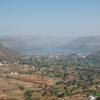
The G20 is a global platform for the discussion of cooperation, policy, and governance pathways aligned with the common interests of its member states, which include the world’s largest economies. This year, to support the G20 process, IIASA produced four policy papers providing insight into the complexities of potential multilateral institutional reforms.
Multilateral institutions help to bring countries together and work toward a sustainable future for all. However, they are often underfunded and somewhat disempowered to do what they were created for – to facilitate global cooperation on major and shared global problems.
This year India held the Presidency of the G20 under the banner of One Earth, One Family, One Future, emphasizing Indian priorities to address the issues related to global challenges that put our collective wellbeing at risk and require unprecedented global cooperation.
Recognized for its impartiality and scientific expertise across relevant domains, IIASA was invited to produce inputs for the G20 process on the future of multilateralism and key multilateral institutions. The institute convened a consultative process involving 25 renowned external experts from around the world to produce a series of policy papers presenting recommendations that explored several areas of reform including reforms of the United Nations, climate finance, the World Health Organization (WHO), and the World Trade Organization (WTO).
The policy papers were prepared through joint efforts of IIASA researchers under the leadership of IIASA Director General Albert van Jaarsveld, IIASA Advancing Systems Analysis Program Director, Elena Rovenskaya, and IIASA Distinguished Visiting Fellow and President of the UN Sustainable Development Solutions Network, Jeffrey Sachs.
“IIASA conducts policy-oriented research into pressing concerns that affect the future of all of humanity, such as climate change, energy security, population aging, and sustainable development. By deploying systems thinking, IIASA can coordinate knowledge sharing, synthesis, and the co-development of policy recommendations, such as these policy papers,” notes Rovenskaya.
Many of the recommendations made in these policy papers found traction and resonance in the G20 New Delhi Leaders’ Declaration. Among those key recommendations were: strengthening the role and reach of the global multilateral system while increasing the representativeness, transparency, equity, and accountability of its major institutions; strengthening the voice of developing countries in global decision making; renewing the commitment to open, inclusive, equitable, fair, transparent, and sustainability-promoting global trade with the WTO at its core; scaling up a diversity of affordable financial sources to support the achievement of global developmental and Agenda 2030 objectives; and enhancing the capacity of the Multilateral Development Banks to contribute to this goal.
“These key principles of global transformation are anticipated to be carried forward into the upcoming G20 Presidencies of Brazil and South Africa in 2024 and 2025 respectively. The prospect of renewed global cooperation and improved global governance, possibly against some prevailing headwinds, could prove a turning point for global solidarity for a sustainable future. This ambition, shared by IIASA and the G20 Presidency of India, will hopefully mark a turning point in progressive global cooperation for the benefit of all,” Van Jaarsveld concludes.
Further info:
https://pure.iiasa.ac.at/19117
https://pure.iiasa.ac.at/19118
https://pure.iiasa.ac.at/19119
https://pure.iiasa.ac.at/19120
https://www.g20.org/content/dam/gtwenty/gtwenty_new/document/G20-New-Delhi-Leaders-Declaration.pdf
https://iiasa.ac.at/news/aug-2023/iiasa-director-generals-mission-to-india
News

12 August 2024
RESIST updates

27 February 2024
Second stakeholder workshop of the fairSTREAM project

29 November 2023






